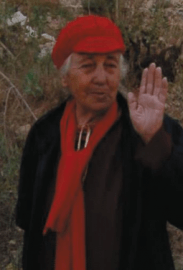
https://www.filmplatform.net/product/wadi-grand-canyon
A film-diary shot in the occupied territories before and during the invasion of Lebanon. Field Diary also introduced what would become Gitai’s signature style: the long, lateral tracking shots that, as Yann Lardeau noted in Cahiers du cinéma, “become a question of morality…we never enter into the reality of the war, but we always remain on the edge of the scene”.
